 Low Pricing
Low Pricing
System
Features
WHY QUBI VIRTUAL ROBOTICS
 Unlimited
Unlimited
Environments
 Different Kinds
Different Kinds
of Robots
 Learn at School
Learn at School
& Home
 No Extra
No Extra
Hardware Required
 Easier and Safer
Easier and Safer
for Early Childhood
 Creative Missions
Creative Missions
and Activities
Explore Qubi Kids
LEARN TO CODE BY CONTROLLING VIRTUAL ROBOTS!
Qubi Kids is a simpler version of Qubi virtual robotics module, that is designed for students aged 5 to 8. It uses a visual programming language that consists of blocks with pictures that represent actions. Students can drag and drop the blocks to create programs to control their robots. Qubi Kids is a great way for young students to learn about STEM concepts such as programming, robotics, and problem-solving. It is also a fun and engaging way for students to develop their creativity and imagination.
LET’S EXPLORE THE POWER OF QUBI
Simple Engine and friendly user interface suitable for early childhood

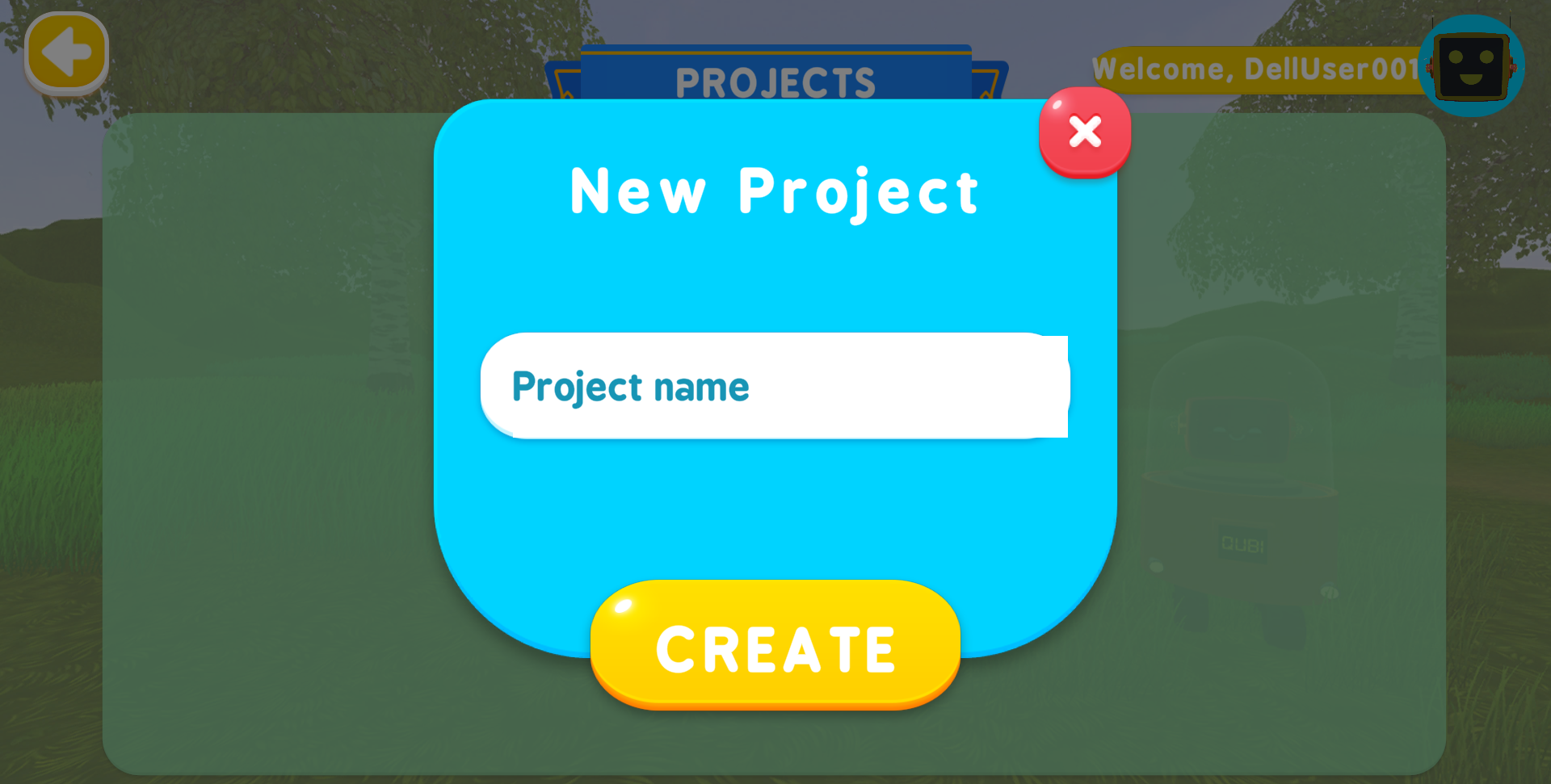
Explore Qubi Kids
EASY USER INTERFACE
Qubi Kids has a childish UI that is colorful and playful, it is also designed to be easy to navigate for young children, with large buttons and clear labels.
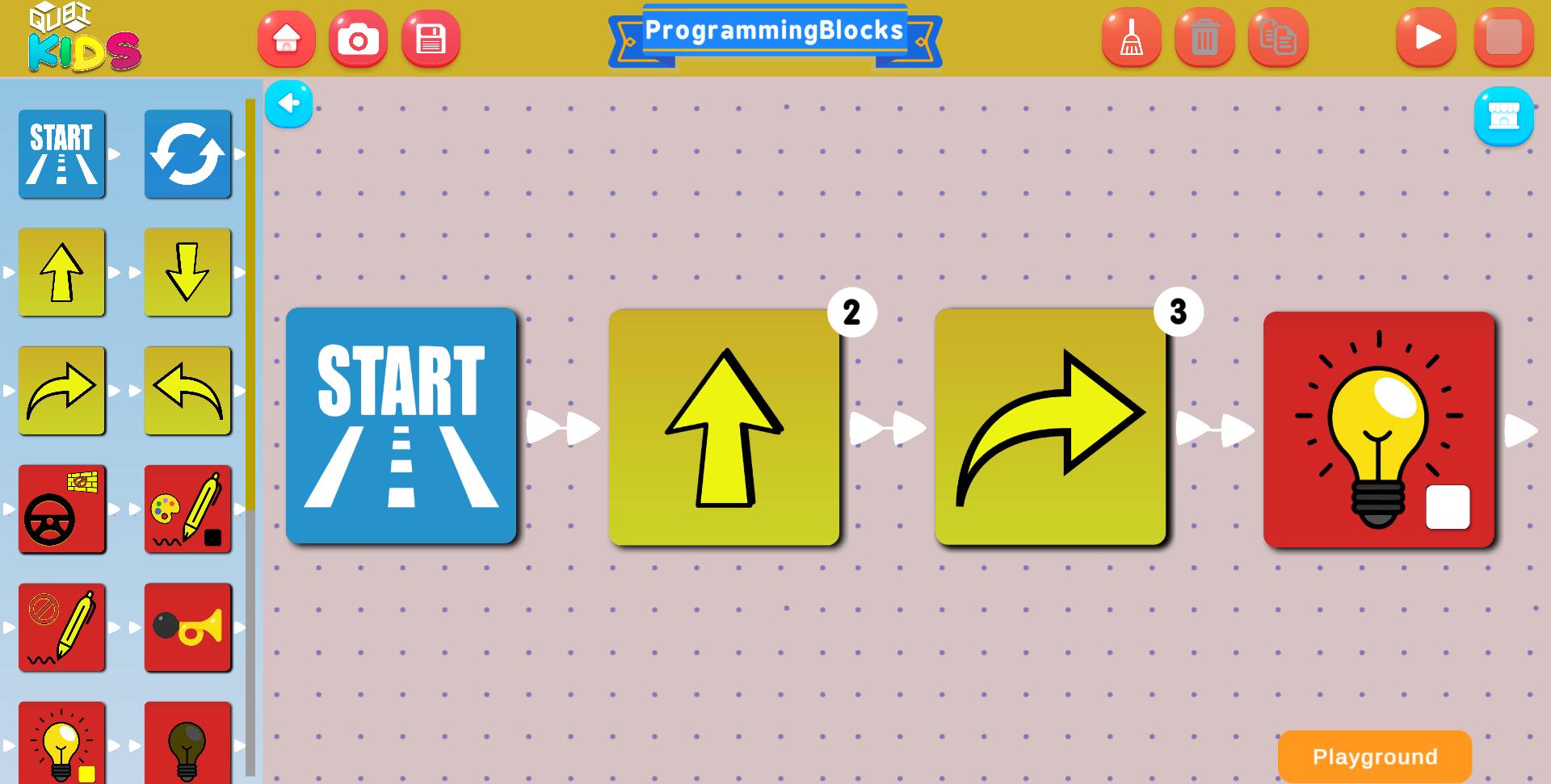
Explore Qubi Kids
INTUITIVE PROGRAMMING BLOCKS
The blocks in the Qubi Kids programming language are large and brightly colored, with simple and easy-to-understand icons. For example, the block for moving the robot forward is a green arrow, and the block for stopping the robot is a red stop sign.
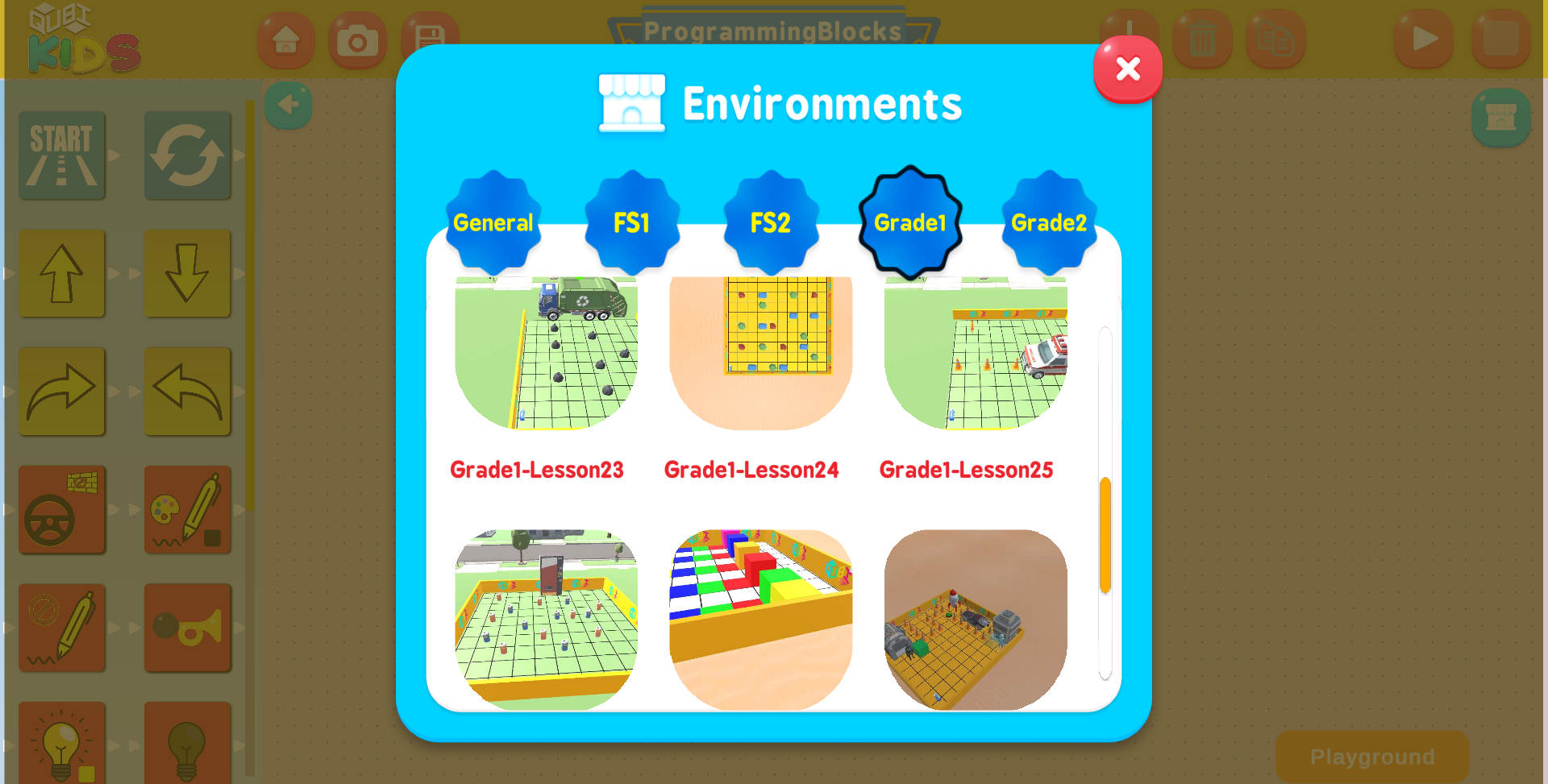
Explore Qubi Kids
DIFFERENT ENVIRONMENTS AND LEVELS
Qubi Kids offers a wide range of pre-built environments that provide students with a variety of realistic scenarios in which to test their robotics skills.
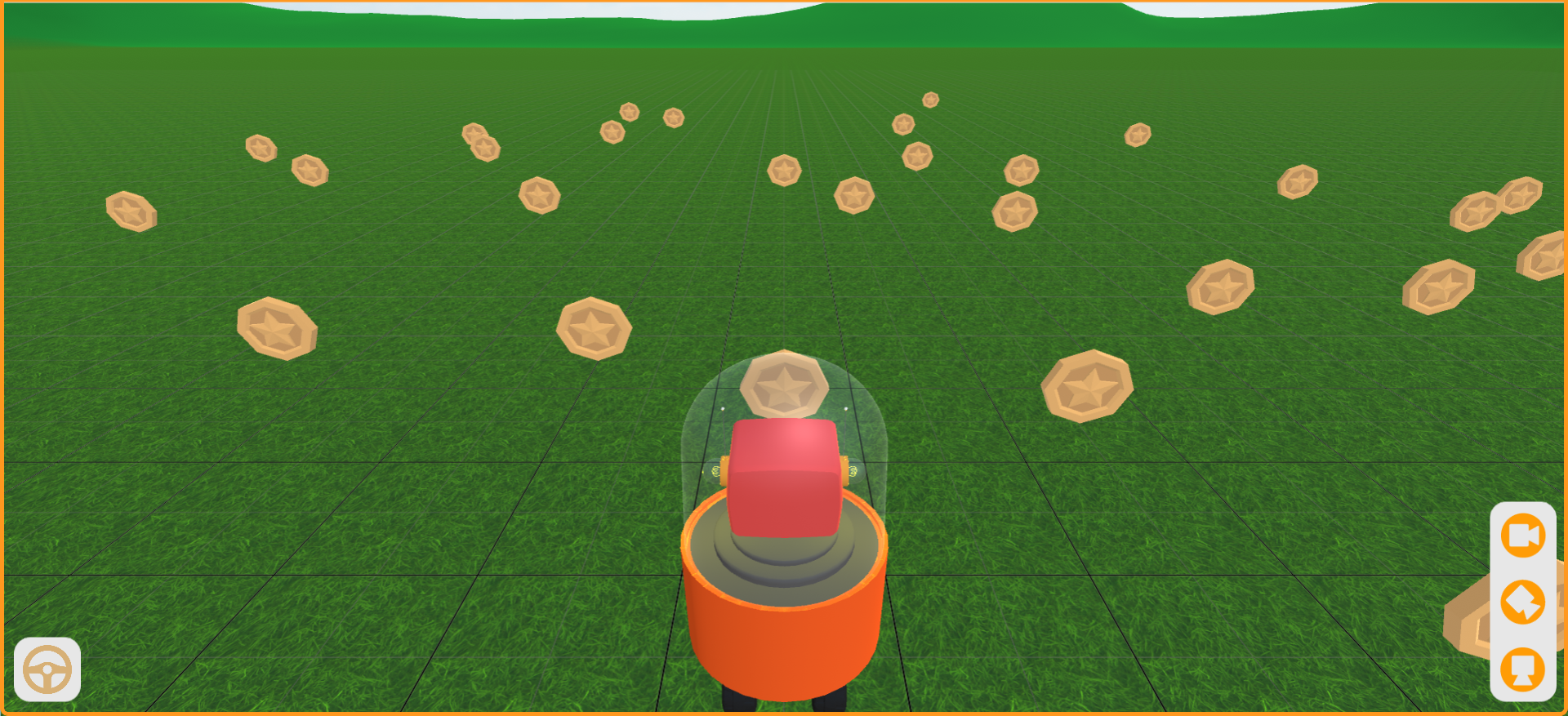
Explore Qubi Kids
CREATE ANY MAP YOU WANT
Teachers can also create their own environments in Qubi Kids using Livit Studio’s powerful environment editor. This allows them to be creative and to design their own challenges. curriculum.
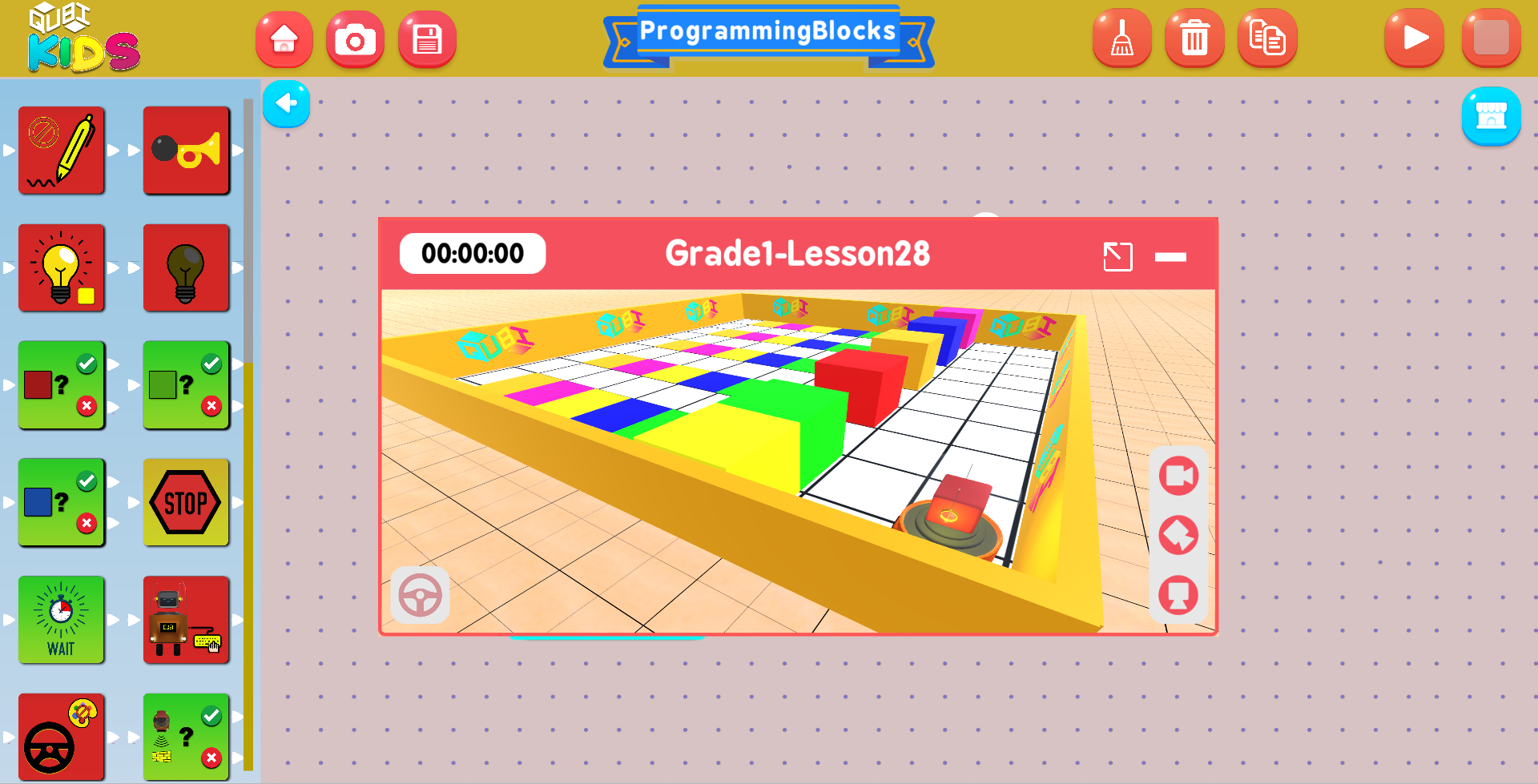
Explore Qubi Kids
SIMULATION OF 2 SENSORS
Qubi Kids simulates 2 sensors: Proximity Sensor and Color sensor
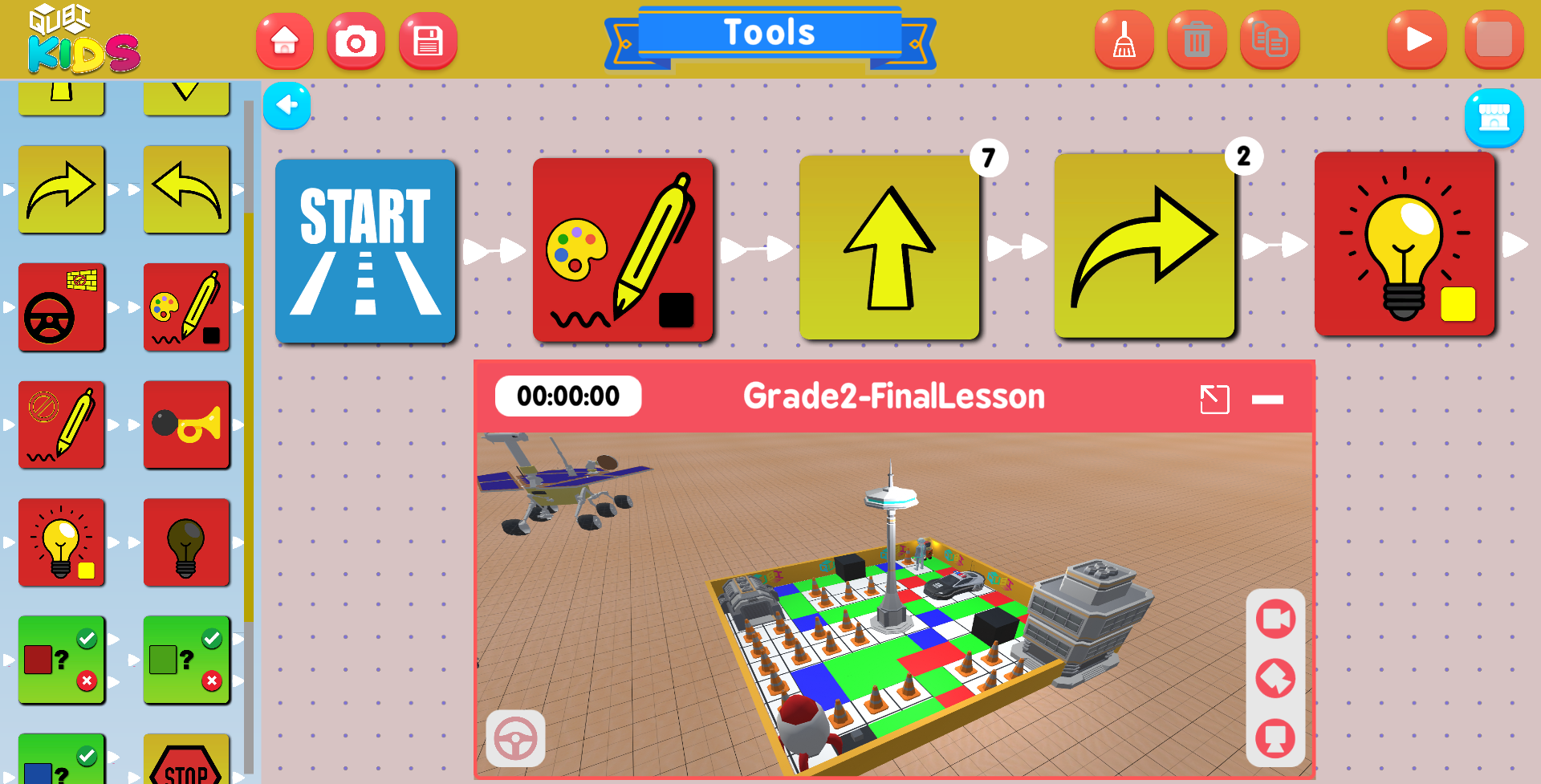
Explore Qubi Kids
EXCITING TOOLS TO ENRICH STUDENTS EXPERIENCE
The Qubi Kids robot has a pen, RGB LED, and play sound option that can teach students about geometry, color theory and sound effects in a fun and engaging way. For example, students can program the robot to draw shapes, change the color of its LED, and play sounds.

